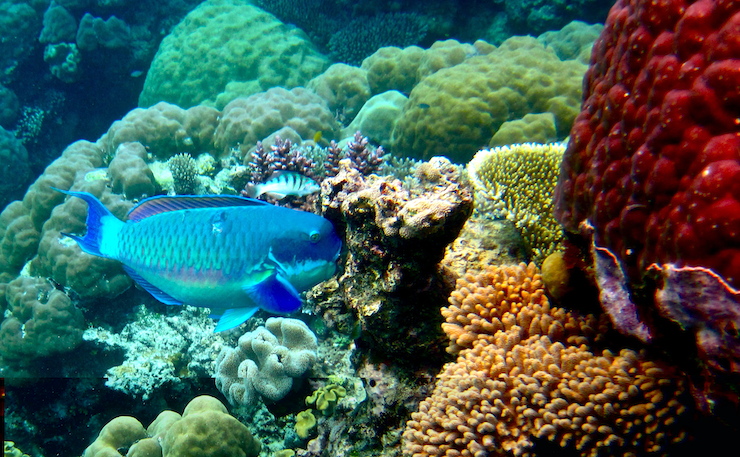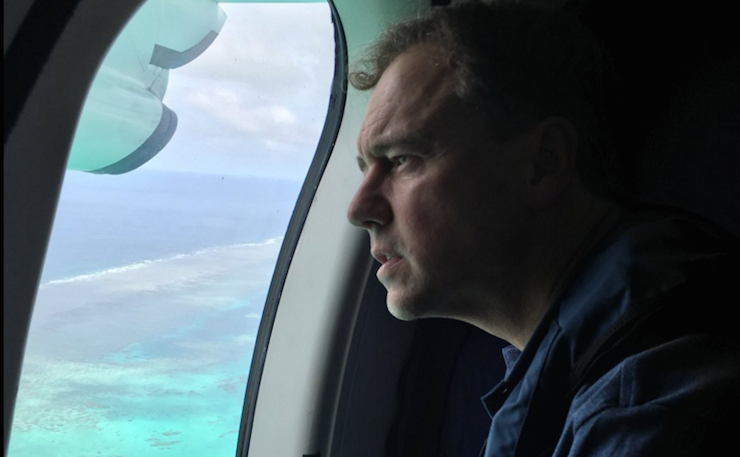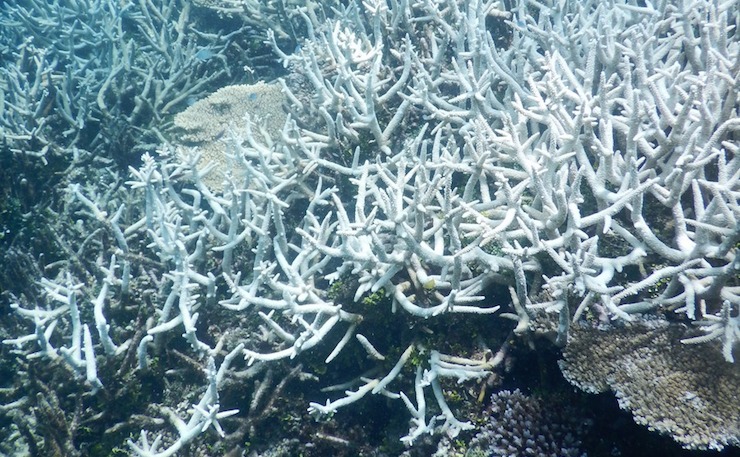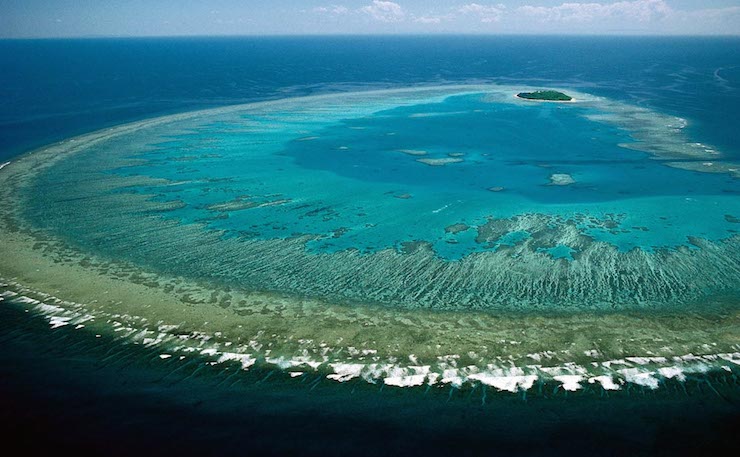Environmentalists have seized on revelations that a government taskforce secretly estimated it could cost up to $16 billion to meet the Great Barrier Reef water quality targets, and demanded governments stump up to save the national icon.
The astronomical figure was unveiled by the ABC this afternoon, after the national broadcaster obtained a secret preliminary costing which had been prepared as part of the Great Barrier Reef Water Science Taskforce.
The Taskforce handed down a final report last week, but the $16 billion figure was not disclosed.
It dwarfs the money that governments have so far put on the table. Queensland’s Labor Government has pledged $90 million over four years to improve water quality, while the Federal Coalition budget this month allocated an additional $171 million for the Reef (and not all of that is for water quality).
The Australian Marine Conservation Society’s Imogen Zethoven said the ABC reporting shows that governments simply aren’t doing enough. While the figure is only preliminary, she said it does “show the quantum necessary to fix the problem”.

A spokesperson for the World Wildlife Fund, Nick Heath said that “if true, the costings estimate hits the reset button on the whole issue of Reef funding, and that “this report must jolt the main political parties into lifting their investments to secure the Reef’s future”.
The Reef Taskforce was comprised of economists and water quality experts, and was commissioned to provide advice to the Queensland Government on how best to spend its $90 million funding commitment in order to meet its 2025 targets.
The key targets are to reduce nitrogen run-off by up to 80 per cent, and sediment by up to 50 per cent. It had been clear from earlier estimates that far more money would be needed, but the $16 billion figure is even higher than had previously been though.
One recent estimate from scientists at James Cook University pegged the cost of reviving the Reef’s water quality at $10 billion over the next decade, but no political players have so far come close to offering anything like what’s required.
The Federal Labor Party week promised funding of up to $500 million earlier this week – which is $377 million more than what the Coalition has committed to – but even at the lower level costing of $10 billion this represents only one tenth of what’s required.
Leading water quality expert Jon Brodie, who modelled the $10 billion figure, said that even if Labor wins the upcoming Federal election the money they’re offering is simply not enough to stave off a terminal decline in the Reef’s health.

Climate change is the greatest long-term threat to the Reef, but experts say if you reduce the damage being done by polluted water then the Reef has a much better chance of withstanding the damage climate change has already started doing.
Zethoven said that “unless there’s a major injection of funding and also regulations to actually put a regulatory limit on the amount of agriculture runoff into the Reef, then that is the reality we face, particularly if you add on the massive problem of global climate change”.
“This problem has built up over a generation: The reality is we have a very extensive grazing industry and cane industry operating in a catchment next to the greatest marine treasure in the world,” she said.
“The reef has evolved to exist and to thrive in nutrient-poor water. It needs to be in very clear clean water to thrive, and over the generations with the presence of grazing and cane that’s not being carried out in a highly sustainable way, it’s led to massive outputs of sediment and nitrogen and pesticides.
“Over time, that’s accumulated into a very big problem.”

The Reef has made headlines over recent weeks because of another problem. Unusually warm waters have led to coral bleaching on 93 per cent of the Great Barrier Reef, killing off more than one third of corals on sections of the the natural wonder.
There will undoubtedly be more of these coral bleaching events, but scientists hope that if the Reef’s resilience is built up – by improving water quality, controlling plagues of crown-of-thorn starfish, and reducing overfishing – that it will be able to better-absorb the coming climate impacts.
Nick Heath said that while the money needed to meet water quality targets is substantial, it is not without precedent.
“Australia is spending almost $13 billion on the Murray-Darling Basin,” he said. “The Reef is a national treasure. It’s the jewel in the crown of Australia’s tourism industry, [and]it must have a similar-sized rescue package to the Murray-Darling Basin,” he said.
According to the report published by the Great Barrier Reef Water Science Taskforce, the Reef brings in $6 billion annually, and supports more than 70,000 jobs. Over the last three decades, it has already lost around half of its hard coral cover.
Donate To New Matilda
New Matilda is a small, independent media outlet. We survive through reader contributions, and never losing a lawsuit. If you got something from this article, giving something back helps us to continue speaking truth to power. Every little bit counts.





